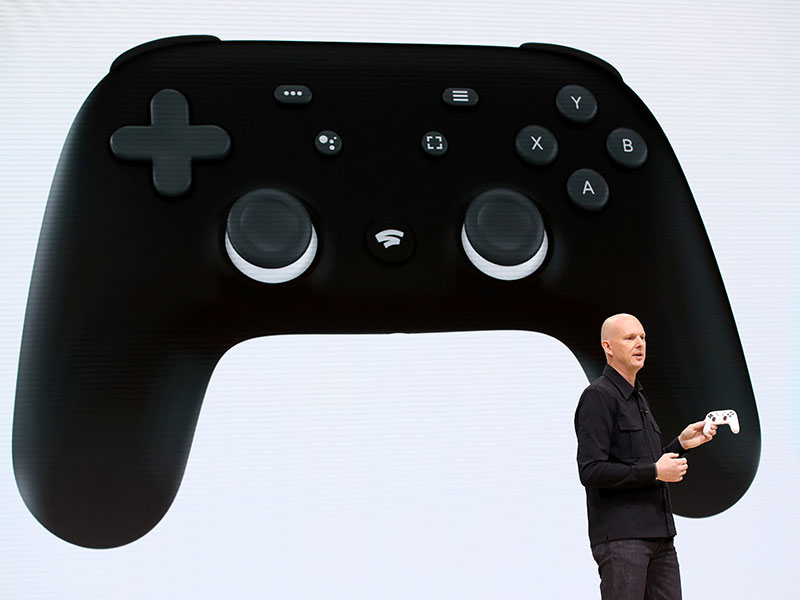Google unveils video game streaming platform Stadia
Google’s new video game streaming service, Stadia, is set to shake up the $135bn-a-year industry by encouraging gamers to move away from traditional consoles

Google Vice President and General Manager Phil Harrison showed off the Stadia controller during the 2019 Game Developers Conference in San Francisco on March 19
On March 19, Google showcased Stadia, a gaming platform that will bypass the need for a dedicated console, at the 2019 Game Developers Conference in San Francisco. The service will allow users to stream games directly to their computers, televisions and mobile devices from Google’s servers. Google also unveiled the accompanying Stadia controller at the event.
Google, which already has a significant indirect impact on the gaming industry through its video-sharing platform, YouTube, has determined that cloud-based services will represent the future of the market, which is worth approximately $135bn a year.
Previous video game streaming services have failed to catch on – largely due to issues with latency, an exasperating problem for gamers who rely on super-fast reactions to gain an edge on their competitors. Google, however, believes it can overcome this issue: by connecting directly to the internet and communicating with Google’s servers independently, the service should avoid problems with lag.
By connecting directly to the internet and communicating with Google’s servers independently, Stadia should avoid problems with lag
“We learned that we could bring a AAA game to any device with a Chrome browser and an internet connection,” said Google CEO Sundar Pichai. Pichai confirmed that Google will release Stadia later this year in the US, Canada, the UK and most of Europe.
The threat posed to traditional gaming manufacturers is already being recognised: shares in Japanese console makers Sony and Nintendo fell by three percent as Google unveiled Stadia. Analysts, however, have suggested this drop was a knee-jerk reaction.
At present, the lack of games means there is still some way for Stadia to go before its formal launch on the market. Google also failed to disclose a price during the launch event, leaving question marks over its mass-market appeal.
As Google makes its debut in the gaming market, two other companies are likely to follow suit: Amazon and Tencent. The two tech firms also provide cloud-computing solutions, while their existing investments in the gaming industry should provide them with a platform to challenge Google’s offering. Cloud computing has already made its impact felt within a variety of sectors; now, it looks set to shake up the gaming market as well.













